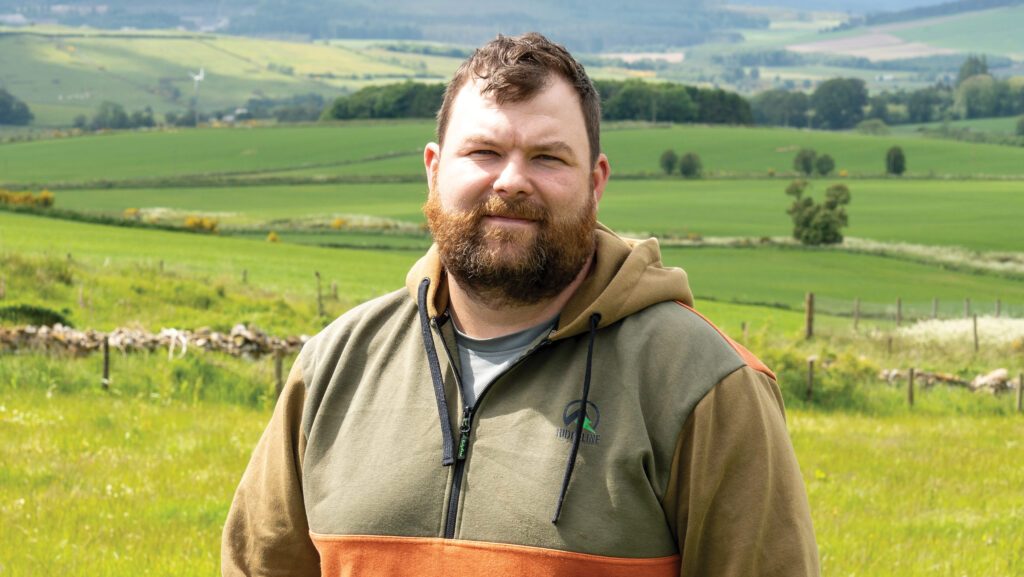Farmer Focus: New tenancy paves way for beef and sheep growth
 © Angus Findlay
© Angus Findlay Exciting news: Claire and I have been very fortunate to obtain a tenancy on a farm following the retirement of a neighbour. It has been quite an effort to get it over the line, but it will be well worth it.
The extra land will allow us to expand our suckler herd and ewe flock, and provide security for years to come.
It will also lead to one of the most satisfying things in farming: getting a farm fully set up the way we like it.
See also: Advice on managing mobile water troughs for sheep flocks
There will be plenty of fencing, water troughs and reseeding to be done.
In the meantime, August sees the end of bulling season for us, with the bulls removed after their two cycles with the cows.
We take notes meticulously on bulling activity, and the second cycle is looking quiet, as hoped.
Thankfully, we have had no major bull breakdowns, so all should be well. We’re keeping our fingers crossed for a successful scan, just in case..
With the bulls coming to the end of their season, attention switches to the tups, as we look to bring in further reinforcements to aid the expansion of our flock.
We have also been making hay and silage, with yields looking fairly poor, especially on lighter land. The dry, warm and windy weather has been conducive to making good hay though. T
Thankfully, the recent wind has cleared the muggy weather, which was becoming unbearable, with lots of fly problems appearing in both cattle and sheep.
We recently welcomed some international visitors, firstly a group of corn growers and cattle ranchers from Kentucky, followed by a farming family from Michigan who run a forage-based herd of Red Angus and sell their meat direct to the consumer.
I loved hearing about their cultures and how their farming systems differ from ours. We found plenty of common ground, particularly around the merits of Tamnavulin whisky.
We learned that the soil organic matter found in both states was at much lower levels than soil tests have shown here – 3-4% was seen as a good level in their areas.
I think this is a real strength of grass-based systems in this country and is hopefully something that we are rewarded for in the future.

